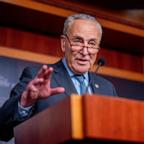Social Media a Lifeline, Also a Threat?
Now a force to be reckoned with, Twitter is raising security questions.
Nov. 28, 2008— -- In the initial stages of the Mumbai terror attacks, when the public was trying to make sense of the chaos, social media sites like Twitter and Flickr produced some of the first inklings of the enormity and viciousness of the assaults.
Those caught in the crossfire used their cell phones and computers to provide firsthand accounts of the casualties and damage.
One who identified himself as Vinu posted a photostream of the devastation on his Flickr page. Another blogger, Manish, liveblogged the attacks.
Concerned friends and family members, from Bangalore to British Columbia, forwarded e-mails with the url of an open Google spreadsheet that listed the names of the injured and the dead.
Others used Facebook and Google status updates to exchange information and prayers about loved ones.
"If you're a concerned person, Twitter has been great," Anjali Adukia, a Harvard University graduate student with personal and professional ties to India, told ABCNews.com. On her Facebook page, she expressed her concerns for family members and friends in Mumbai and shared the link to a blog that had compiled a list of resources.
Through e-mail, Google status updates and the telephone, she was able to confirm that close friends and family were safe. The instantaneous nature of social media enabled her to correspond with dozens of people at once, Adukia said.
"[The information] spreads like wildfire," she said. "People are hungry for a place to share their information."
But not all of the info churned out was accurate.
The BBC reported that the Indian government had asked for live Twitter updates from Mumbai to cease immediately.
"ALL LIVE UPDATES - PLEASE STOP TWEETING about #Mumbai police and military operations," the forwarded tweet said.
But Amy Gahran, a media consultant and editor of the Poynter Institute's E-Media Tidbits blog, is not convinced that the Indian government originated that message. She has tracked down the original message to a Twitter user named Mark Bao, who is a high school junior based in Boston.
Through his MumbaiUpdates Twitter account, he has been sharing information that is being streamed online by Indian news outlets New Delhi Television Limited (NDTV) and IBNLive.com.
On his Twitter page, Bao said that he had retweeted a message from another person in Mumbai. The specific origin of the message has not been identified but, he said, it has been confirmed by Mumbai police on video that they don't want live updates.
Gahran said the murky origins and genuineness of Bao's message raises questions about the role of social media in emergency situations.
As always, she cautioned, people need to question the source and be wary of repeated rumors as social media gives anyone a megaphone to spread misinformation.
More important, she said it gives people the opportunity to unwittingly spread sensitive or compromising information.
"If someone is tweeting … this is where the sniper is going," she said it could alert the gunman that he is being tracked.
"We're getting to the point where individual people are the media … and governments are starting to get concerned about that," she said.
Bob Gourley, chief technology officer at the consulting firm CrucialPoint LLC and former chief technology officer of the Defense Intelligence Agency, said this is an issue that governments need to seriously consider.




